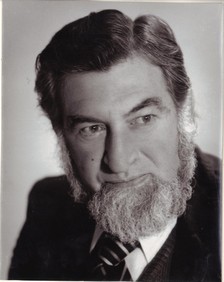
Berislav Popović (1931–2002) was one of the most important personalities in recent Srbian music history – an active composer, distinguished pedagogue, original music theoretician and one of the pillars of musical life in the country during the second half of the 20th Century. After studying medicine and literature for a year, he enrolled in the Music Academy in Belgrade where he graduated from the Department of teaching in 1956, and later from the Department of composition in 1966 where he studied in the class of Stanojlo Rajičić. Between 1960 and 1967 he worked as a professor of music theory subjects at the School of music „Josip Slavenski” in Belgrade, and in 1967 he became an assistant professor at the Music Academy where he taught harmony, counterpoint, analytical harmony and analysis of forms. Since his appointment as an associate professor (1980), and subsequently full professor (1987) of the Faculty of Music in Belgrade, until his retirement (1996), he taught Musical forms (which is the most important area of Popović’s theoretical and creative researches and interests) to students of composition, conducting, musicology and ethnomusicology. For a short while he also taught the Analysis of music styles.
Berislav Popović’s compositional opus is considered one of the most daring and complex among the authors who burst onto the music scene in Serbia during the 1960s. Pushing the boundaries of musical expression towards the achievements of the leading European composers, already in his early works (Kamena uspavanka for mixed choir, piano works – Suite, Sonate, Variations) and especially in his subsequent works (String quartet, Tužbalice for two groups of instruments, Concerto for orchestra Difrakcije and Medium tempus for large symphony orchestra), Berislav Popović ventured far outside the dominant musical aesthetics in Serbia of the time, always faithful to the discovery of new sound timbres and ways of shaping the sound mass even in his later works such as the Igra senke for wind quintet, Ballade for strings and others.
Popović’s theoretical work is immediately connected to his creative preocupations, his interest in problems of contemporary creation and his pedagogical work on the subject of Musical forms. He published a number of studies, most often dedicated to the questions of musical forms (Tipovi oblika kod savremene muzike, Konstitucija muzičkog dela, Oblik u muzici XX veka, Uloga teoretskog obrazovanja u formiranju interpreta” etc.), as well as one of the most important tretises in Serbian musical theory, the book Muzička forma ili smisao u muzici, also published in English language (Music form or meaning of music). He also tackled on musical criticism and wider topics of music in society.
Berislav Popović was an active participant in Serbian musical life and he held many important positions and functions over the period of three decades including: vice-dean of the Faculty of Music in Belgrade, twice vice-rector of the University of arts, dean of the Faculty of Music, Head of the Chair for music theory of the Faculty of music, chairman of the Yugoslav organizing board of the European year of music, member of the European committee for the European year of music within the European Council and Parliament, vice-chariman of the SOKOJ (Union of organisations of Yugoslav composers), chariman of the Council of all music programmes of the Radio Belgrade, etc.
About the piece
Berislav Popović composed his work Igra Senke [Shadow Play] for wind quintet in 1981. “Igra senke, piece for wind quintet, was composed”, in his words, “as a memory of a lost friend, the composer Petar Ozgijan. The work is a reflection on Ozgijan’s music ideas featured in his magnificent opus, but not as their mimicking – rather as contemplating about them. The game is not interrupted, it is, in fact, a man’s inextinguishable spirit in its different facets.” In this piece, “it seems that the explosive and jagged orchestral surface from the piece Medium tempus for large symphony orchestra (1972) is projected onto a smaller sound plateau, more chamber and more introvert.” Although Popović retains the expressionist outline of certain melodic units, especially when treating instruments as quasi soloists, moments of transparent and psalmodic musical weaving with mixtures of chords which are dominated by “specific combinations of seconds and thirds, lead to the independence and liberation of the interval of third and final, purified, tonal chord f – a – c” (Mirjana Veselinović, „Difrakcije… Skica za muzičku poetiku Berislava Popovića”, Zvuk, 2, 1986).
The piece was performed by renowned ensembles such as the Belgrade wind quintet (in Belgrade, at the Kolarac Hall, as well as within the frames of the festival Muzika u Srbiji in 1982) and Skopje wind quintet (in Skopje, as well as at the 20th Review of Yugoslav Musical Creativity in Opatija in 1983). The Novi Sad Wind Quintet performed this piece in Belgrade (2021), Zaječar (2022), and Novi Sad (2023).
Tijana Popović Mlađenović


